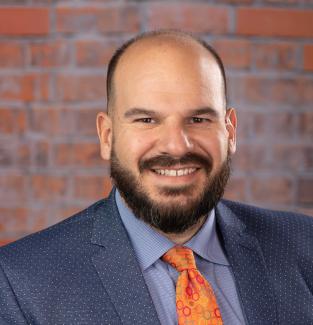How LGBTQIA+ Law Students Are Navigating Through COVID-19
The COVID-19 pandemic has disrupted higher education in an unprecedented way, and one aspect of that disruption is that LGBTQIA+ law students, who already face unique challenges on their path to a career in law, are now finding it harder to connect with other members of their community. How can we reimagine the idea of “community” during this time of upheaval and health concerns?
During a recent LSAC webinar, Mario Villa, director of student recruitment and financial aid at the University of Texas School of Law and a member of LSAC’s Sexual Orientation and Gender Identity (SOGI) Subcommittee, discussed that question with four current law students who identify as LGBTQIA+.
Pat Deering, a rising evening 4L at Capital University Law School, said the adjustment to remote learning has been difficult, especially given the lack of in-person networking events. “You kind of realize quickly how this is a career that depends on face-to-face interactions and personal connections,” he said.
Abigail Orgeron, a rising 3L at the UT School of Law, added that many law students are currently stuck at home, possibly with family or roommates who may be unsupportive of their identity. “It’s important to be reminded that our experiences are real and valid,” she said, by reaching out to friends and other members of the community.
Kay Goldberg, a rising 2L at UT, and Ethan Armitano, a rising 3L at Roger Williams University School of Law, both talked about the academic challenges associated with the current situation. Ethan reported having to create a space at home where he could block out the outside world and focus on school. And Kay said they changed their expectations and routine to account for the fact that their attention span at home is different than it is on campus.
The students also discussed the challenge of having difficult conversations with their peers, both about LGBTQIA+ issues and about other recent events. Kay and Abigail mentioned the publication, last year, of an issue of the Texas Review of Law and Politics that included rhetoric widely seen as transphobic and homophobic. Kay said the community of friends and allies who spoke out against that rhetoric was heartening, but the flip side was realizing how many people they knew who were involved with the journal’s publication.
As Pat noted, most people who attend law school will meet other students who have “backwards opinions” on these issues. “Unlike undergrad, you don’t have to be gentle in conversations anymore,” he said. “The legal profession is, at its heart, confrontational. You don’t have to coddle these backwards opinions; you’re free and open to challenge them.”
In general, the students suggested reaching out to LGBTQIA+ lawyers in the surrounding city to get a sense of community. Ethan noted that the LGBTQIA+ alliance at his school has been helpful in making those connections. And Abigail stressed the importance of listening — for allies, as well as for members of the community. “Even if you’re part of the community, you aren’t every part,” she said.
Given the protests against police brutality and systemic racism occurring now, many incoming 1Ls, particularly those in the LGBTQIA+ community, may be asking whether they can truly effect change as a lawyer. Abigail recalled advice from one of her professors, Mechele Dickerson at Texas Law, regarding the core classes that 1Ls have to take: “In order to fix a system that is broken, you have to first understand the system.” And Pat added that students don’t have to choose between law school and protesting. “Being a student doesn’t prevent you from taking direct action,” he said.
In closing, the panelists advised LGBTQIA+ law students to be themselves, form relationships, and remember that they aren’t in this alone — a perfect way to cap this discussion of our changing concepts of community. Our sincere thanks to the panelists and Mario for this engaging discussion.

